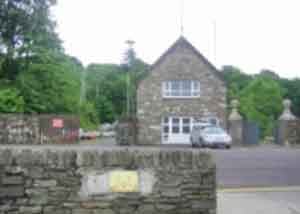Displaying items by tag: Bantry Bay Sailing Club
Bantry Bay Sailing Club

Bantry Bay Sailing Club
It is not known when Bantry Bay Sailing Club was founded, but it is thought to have been in the late 19th century. The club was active during the 1920s and ‘30s but lapsed during the Second World War, probably in 1946, but has been continuously active ever since.
The club was always based near the Abbey area due to the location of the sheltered mooring (inside the Abbey Point), the availability of the Bantry House slipway (known then as Curleys/Cons Slip) and convenience to the town. There was no clubhouse until about 1970, when a prefabricated wooden structure was obtained from Whiddy Island after the terminal construction work.
During the 1960s club membership had increased dramatically, especially among young members owning their own boats and it was necessary to provide better facilities. The plot of ground between the cemetery and the strand was donated by the late Paddy O’Keeffe on condition that a slipway be built suitable for launching and hauling ashore larger boats. The Abbey slip was built by the County Council and Bord Failte. The plot adjoining was designated a leisure area for public use and the temporary clubhouse was sited there until it was burned about ten years later.
At that stage the club decided to build a permanent structure and the only suitable location was the old Bantry House boatyard. After the Whiddy Disaster in 1979, the Government provided funds to the Bantry area to compensate for economic loss, provide jobs and fund projects and facilities. The Club availed of this and a lease of the boatyard was acquired, the old boathouse demolished and the new clubhouse was built (facing stone from old boathouse). It was officially opened in June 1988 by the late Denis Doyle.
The club would like to acknowledge the generosity of the Shellswell White family (Bantry House).
Visitors welcome!
Facilities include storage (temporary with temporary membership), shower and toilet facilities, navtext, phone, waste bin, water and free visitors moorings provided by Bantry Harbour Commissioners.
(The above information and image courtesy of Bantry Bay Sailing Club)
Bantry Bay Sailing Club, Abbey Road, Bantry, Co. Cork. Tel: 027 51724
Have we got your club details? Click here to get involved























































